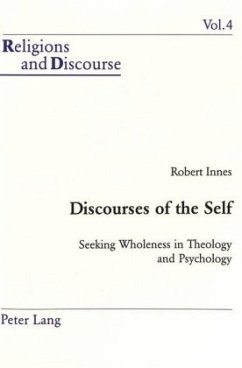What is wholeness and how can one find it? Drawing on Charles Taylor's philosophy of personhood, this book suggests an answer and, in so doing, also provides a novel way of comparing the disciplines of theology and psychology.
The book describes how the modern self has arisen historically through its relation to sources of value. Theology and psychology are presented as discourses which articulate these value-sources. Hence they offer complementary resources for conferring a unified sense of self.
Key representatives of theology and psychology are considered, e. g. the Augustinian conviction that an individual can attain wholeness through being remade in the image of God, the Freudian struggle for limited self-mastery, the Jungian project of wholeness through individuation, and the humanistic aim of self-actualisation.
The book describes how the modern self has arisen historically through its relation to sources of value. Theology and psychology are presented as discourses which articulate these value-sources. Hence they offer complementary resources for conferring a unified sense of self.
Key representatives of theology and psychology are considered, e. g. the Augustinian conviction that an individual can attain wholeness through being remade in the image of God, the Freudian struggle for limited self-mastery, the Jungian project of wholeness through individuation, and the humanistic aim of self-actualisation.

